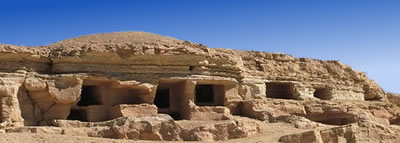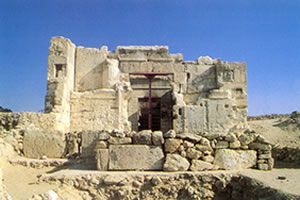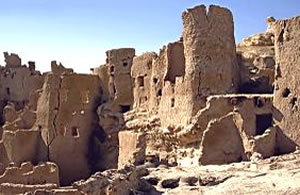Herodotus talks of Siwa during the following period, while narrating of the Persian invasion of Egypt: having reached the oasis to conquer it and destroy the Oracle’s temple, King Cambyses lost, in that same stretch of desert, his army of 50 thousand men.
Two centuries after this, Alexander the Great was to pay a visit to the temple. Siwa’s Oracle recognized his divine nature and predicted his conquest of the world. From that moment onwards Alexander rightfully reigned over Egypt as a Pharaoh.
Under the Roman domination of Egypt, Siwa continued to be a central node for caravan routes to the Mediterranean coast.
With the Arabs invading Egypt and settling in the valley of the Nile, neglecting the inner regions where conditions were much harder, the inhabitants of the oasis of Siwa were left isolated from the flourishing civilisation developing elsewhere in the country. In 1200 A.D. the population was reduced to few hundred souls that built the fortified city of Shali in order to defend themselves. |
 |
 |
|
 |
 |
 |
 |
 |
| The remains of the city still stand out to this day on top a hill from which one can gain breathtaking views of the oasis below. The main activity of agriculture, mainly olive and palm groves, remained the best in Egypt, that even at present continue to be the most important resource of the location. |
|